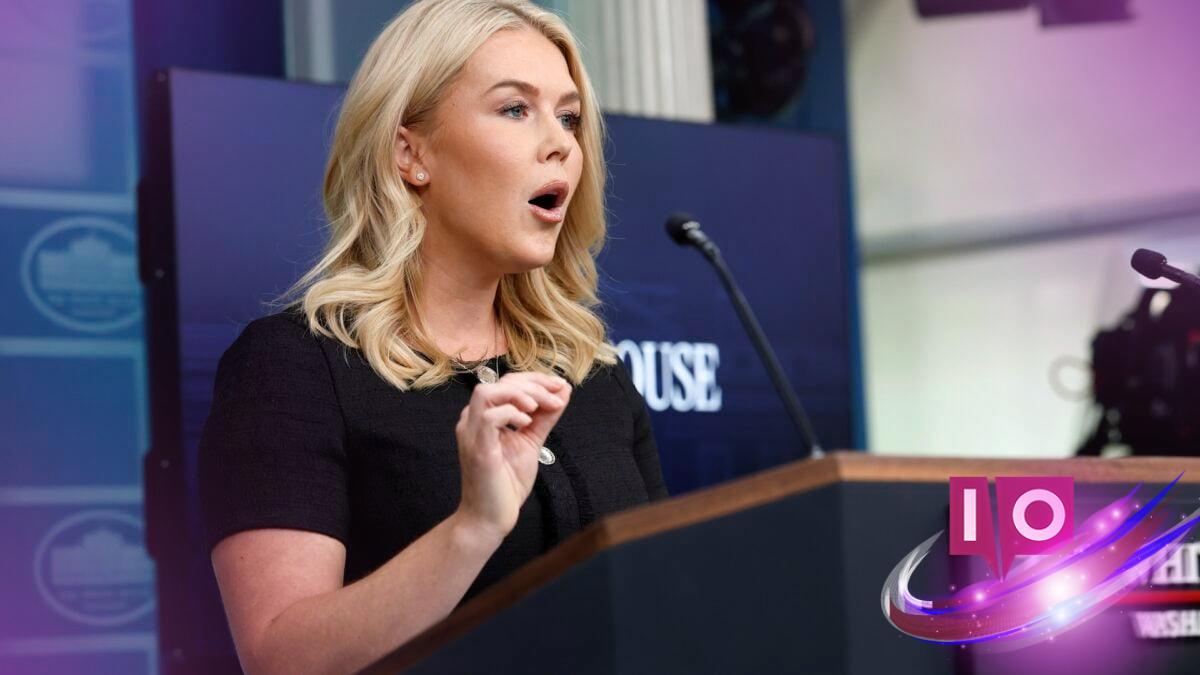In the ever-evolving political landscape, unexpected moments can provide insights into the mechanisms of governance, often with a sprinkle of humor. Recently, Karoline Leavitt, a spokesperson for President Donald Trump, found herself in the spotlight for an amusing slip of the tongue while addressing vaccine policy changes.
Leavitt, just 28 years old, encountered a challenging question from reporters regarding new guidelines that could complicate access to COVID-19 vaccinations. In her response, she made a curious mistake, substituting “use” with “youth,” perhaps leaving many chuckling at the irony. “What I will tell you is that the FDA recently revoked the emergency youth authorizations for three COVID vaccinations while simultaneously green-lighting four new COVID-19 vaccines with 2025 and 2026 formulas,” she said. Clearly, she meant the emergency use authorization, but it wasn’t just a one-off confusion.
She reiterated her point: “The reason for the revocation of that emergency youth authorization is because obviously the COVID pandemic and the public health emergency is over.” Such statements often raise eyebrows, especially in a climate riddled with sensitive health discussions.
Leavitt aimed to clarify misconceptions about the new vaccine policies stemming from Robert F. Kennedy’s Department of Health and Human Services. He leads a department headed by someone known for controversial anti-vaccine views. In defending the FDA’s recent actions, she claimed, “But just to correct the record, because there’s been a lot of misinformation on this, the FDA’s decision does not affect the availability of COVID vaccines for Americans who want them.” This assertion seems overly optimistic given the latest eligibility changes, which limit access primarily to those over 65 or with certain preexisting conditions.
Many are questioning what this means for the general public and how openly accessible the vaccines truly are. Despite this, Leavitt maintained a focus on personal choice, asserting that both the president and the secretary stood firm on this promise.
In a broader context, recent actions—including the dismissal of CDC Director Susan Monarez and resignations of senior officials—paint a picture of internal turmoil. Monarez is reported to have disagreed with the administration’s anti-vaccine stance, further sparking debate about public health strategies in America.
In moments like these, it’s important to maintain some perspective. Karoline Leavitt, despite her earlier slip regarding the “Indo-Pacific” region referred to as “Indo-specific,” represents a segment of government communication that often walks a fine line between fact and confusion. The confidence she exudes while miscommunicating can be bewildering, yet it also brings a wave of humor to serious topics.
Indeed, even seasoned professionals occasionally misstate facts. But Leavitt’s frequency of such occurrences raises questions about the preparedness of individuals in high-profile roles. For example, in April, she claimed the employment rate was at an all-time low, likely intending to refer to the unemployment rate. These mix-ups add a layer of absurdity to public discourse that is sometimes hard to dismiss without a smile.
What impact do these miscommunication moments have on public perception? The blend of humor and political critique keeps the conversation lively and approachable for many. Nevertheless, they also prompt deeper inquiries into the messaging around public health initiatives.
How is the government adjusting its approach to vaccination amid changing policies? At the heart of this discussion is the balance between maintaining health security and individual choice, a promise reiterated by Leavitt.
Are the new vaccine guidelines really in the best interest of public health? Only time will tell how these decisions affect COVID-19 vaccination rates. With qualified medical professionals often at odds over strategic measures, clarity should be a priority, even amidst the humor.
Ultimately, while laughter can spring from these instances, the underlying truths of public health and governance remain vital. As we look to the future, discussing these issues openly is essential for accountability in leadership. For more insightful content on current affairs and health topics, feel free to explore more articles at Moyens I/O.
